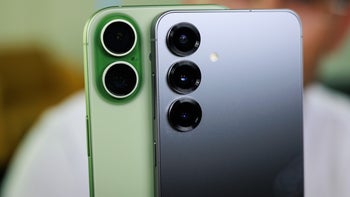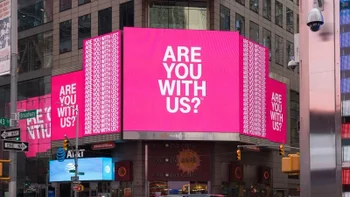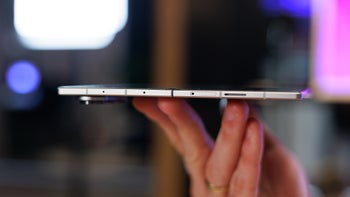Justice Department weighs in: you can record police actions, and they should not try to erase content from your cell phone

The Obama administration, through the Civil Rights Division of the Department of Justice, has weighed in on a lawsuit raised by one Christopher Sharp, about the right of law enforcement officers to access and destroy personal content on your phone without a warrant or a trial.
The plaintiff went to watch a horse race in a bar, which went a bit awry, and he claims the police used force on his friend, before arresting her, while he was trying to film the incident. Officers then demanded the phone to use the video as evidence, and he reluctantly gave it to them. Upon return several minutes after, the video was gone from his smartphone, along with a lot of his personal footage, including moments with his son that he claims held "sentimental value".
During the trial, the municipality said that it provided some formal training to officers after the incident, that people have the right to record police actions, and also sent an email to all officers advising that, which should be deemed sufficient to shut the case. Mr Sharp, however, claims that his First, Fourth and Fourteenth Amendment rights have been violated in the case, and the Obama administration seems to agree. Here's what we got from their "Statement of Interest of the United States", that was filed with the Maryland court involved:
This comes hot on the heels of many controversial rulings on whether or not law enforcement has the right to snoop or dispose with content on your phone, with California governor Jerry Brown vetoing an anti-snooping bill not long ago.
source: DoJ via Arstechnica & Reason

This litigation presents constitutional questions of great moment in this digital age: whether private citizens have a First Amendment right to record police officers in the public discharge of their duties, and whether officers violate citizens’ Fourth and Fourteenth Amendment rights when they seize and destroy such recordings without a warrant or due process. The United States urges this Court to answer both of those questions in the affirmative. The right to record police officers while performing duties in a public place, as well as the right to be protected from the warrantless seizure and destruction of those recordings, are not only required by the Constitution. They are consistent with our fundamental notions of liberty, promote the accountability of our governmental officers, and instill public confidence in the police officers who serve us daily...
Although defendants have taken some remedial actions, these measures do not adequately ensure that violation will not recur. While the city's new training materials acknowledge that it's legal to record the actions of the police, they do not explicitly acknowledge that private citizens' right to record the police derives from the First Amendment, nor do they provide clear and effective guidance to officers about the important First Amendment principle involved.
Although defendants have taken some remedial actions, these measures do not adequately ensure that violation will not recur. While the city's new training materials acknowledge that it's legal to record the actions of the police, they do not explicitly acknowledge that private citizens' right to record the police derives from the First Amendment, nor do they provide clear and effective guidance to officers about the important First Amendment principle involved.
This comes hot on the heels of many controversial rulings on whether or not law enforcement has the right to snoop or dispose with content on your phone, with California governor Jerry Brown vetoing an anti-snooping bill not long ago.
All those police brutality videos on YouTube should feel safe now. One incident in Miami last summer became particularly notorious since law enforcement seized phones from people filming, and destroyed some, then denied it, but one witness managed to hide the microSD card of his HTC phone, and later sold the footage to CNN, proving the officers' word wrong.
source: DoJ via Arstechnica & Reason

Follow us on Google News














Things that are NOT allowed:
To help keep our community safe and free from spam, we apply temporary limits to newly created accounts: